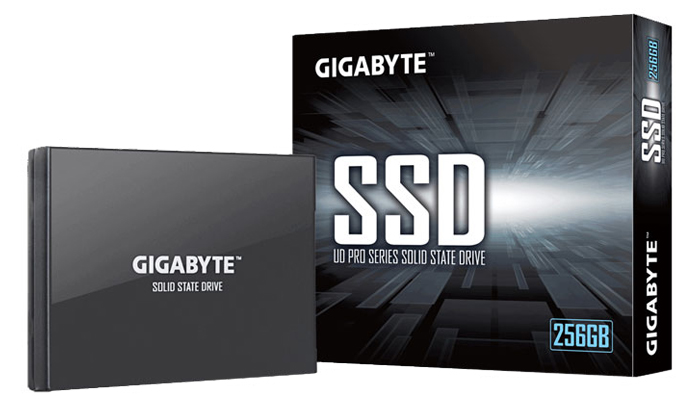Gigabyte is already well established in the motherboard and graphics card markets, making its latest expansion into the storage market a logical progression. Its first selection of UD Pro solid state drives will be available in 256GB and 512GB variants, with durability as the company’s primary focus over speed.
Despite billing its UD Pro series being billed as offering a “high quality, ultra-durable and superior product experience,” both models still manage to push 530MB/s sequential read, and 500MB/s sequential write speeds with ease. The company utilises Toshiba’s 3D TLC NAND Flash, a Phison PS3110 S10 drive controller with optimised firmware, and a DDR3L SDRAM cache to make this happen.
Both models are relatively on par with one another, however the 512GB variant noticeably pushes 80K random read IOPS and 75K random write IOPS instead of the smaller 256GB’s 70K random read IOPS and 40K random write IOPS thanks to its lower capacity.
It seems that Gigabyte is playing it safe with the introduction of two 2.5” SATA drives rather than opting for the newer M.2 form factor, with Jackson Hsu explaining that “SATA interface SSDs are mainstream and have a considerable development history.”
UK pricing has yet to be confirmed, however the 256GB model will set US buyers back by $68.99, while the 512GB variant pushes the cost up to $119.99. Set for launch later this week, both models come with a three-year or 200 terabytes written (TBW) warranty, whichever comes first.
KitGuru Says: While I tend not to push brand loyalty, instead favouring the best products out there based off their own merit, Gigabyte has managed to impress me time and time again. If the company does push into the M.2 market, sign me up. Are you interested in Gigabyte’s new SSDs?
 KitGuru KitGuru.net – Tech News | Hardware News | Hardware Reviews | IOS | Mobile | Gaming | Graphics Cards
KitGuru KitGuru.net – Tech News | Hardware News | Hardware Reviews | IOS | Mobile | Gaming | Graphics Cards



